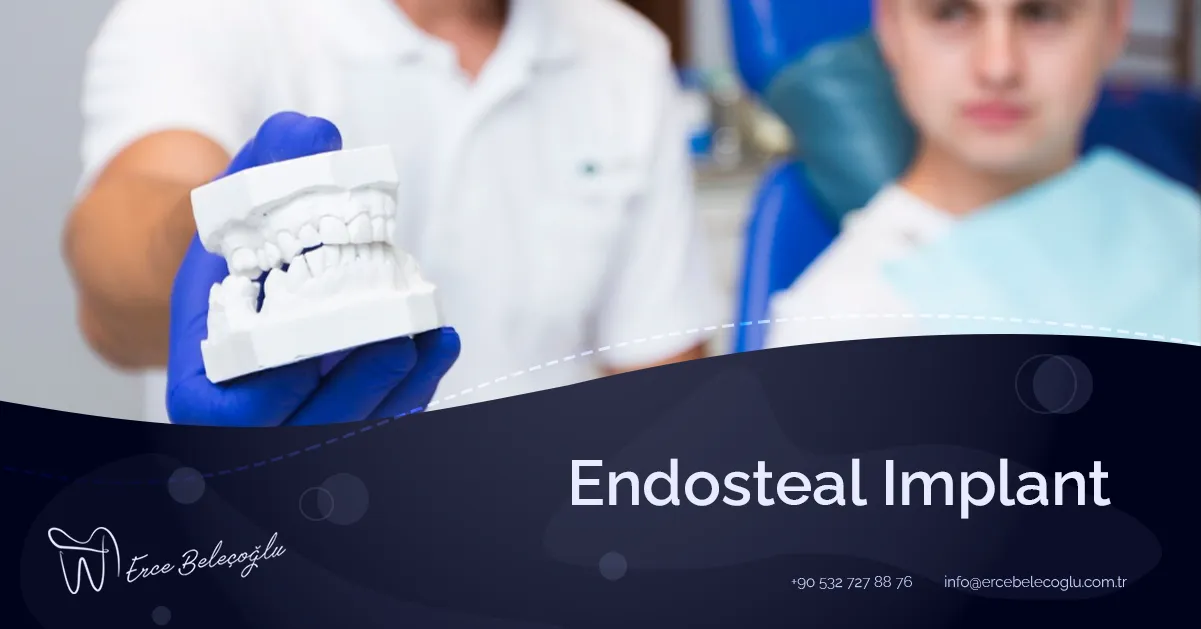Endosteal implant type of dental implant, commonly used as an alternative to a bridge or removable dentures. It provides a long-lasting solution to the problem of missing teeth. Therefore, it is a very popular application.
Endosteal implant have a high success rate and are a preferred choice for people who want a durable and natural-looking replacement for missing teeth. However, it’s important to have a detailed consultation with a dental professional to ensure this is the right choice based on individual dental health and needs.
What is Endosteal Implant?
When it comes to dental procedures, the endosteal ımplant has emerged as a cornerstone in modern dentistry. This type of implant is not just a buzzword but a transformative solution for those looking to replace missing teeth. Let’s delve into what makes endosteal implants an optimal choice for dental restoration.
An endosteal implant is a type of dental implant that is surgically inserted into the jawbone. unlike its counterpart, the subperiosteal implant which rests atop the jawbone, endosteal implants are placed directly into the bone, making them a more stable and natural-feeling solution for missing teeth.
Why Choose an Endosteal Implant?
- When applied correctly, implant procedures mimic natural teeth in both appearance and functionality.
- They are renowned for their longevity, surpassing other dental solutions such as bridges or subperiosteal
- By stimulating the jawbone, endosteal implants help in maintaining bone density, a crucial aspect often overlooked in dental health.
When you visit a dental clinic for an endosteal implant, the process typically involves several stages:
- Assessment,
- Implant placement,
- Healing period,
- Final restoration.

Dental Implants Cost
These implants are not just about enhancing your smile; they’re about restoring your confidence. Understanding the cost and various factors associated with implant surgery is crucial for anyone considering this procedure.
The cost of endosteal dental implants can vary significantly based on several factors:
Geographical Location: The cost can differ depending on where the surgical place implant endosteal procedure is performed.
Quality of Materials: The materials used for the tooth implant play a crucial role in the overall cost.
Dentist’s Expertise: The experience and expertise of the dental professional performing the implant surgery.
While discussing endosteal dental implants cost, it’s essential to compare different types of teeth implants. For instance, zygomatic implants are an alternative for patients with insufficient jawbone but tend to be more expensive due to their complexity.
The process of endosteal implant placement is intricate. It involves implant surgery where the implant is placed directly into the jawbone, necessitating a skilled surgeon and potentially affecting the cost.
It’s important to balance the initial cost of a tooth implant against its long-term benefits. While endosteal dental implants might seem costly upfront, their durability and effectiveness can offer savings over time, compared to other dental procedures.
Understanding insurance coverage and payment options can significantly impact the affordability of an endosteal dental implant. Some dental plans may cover a portion of the cost, and many clinics offer financing options.

